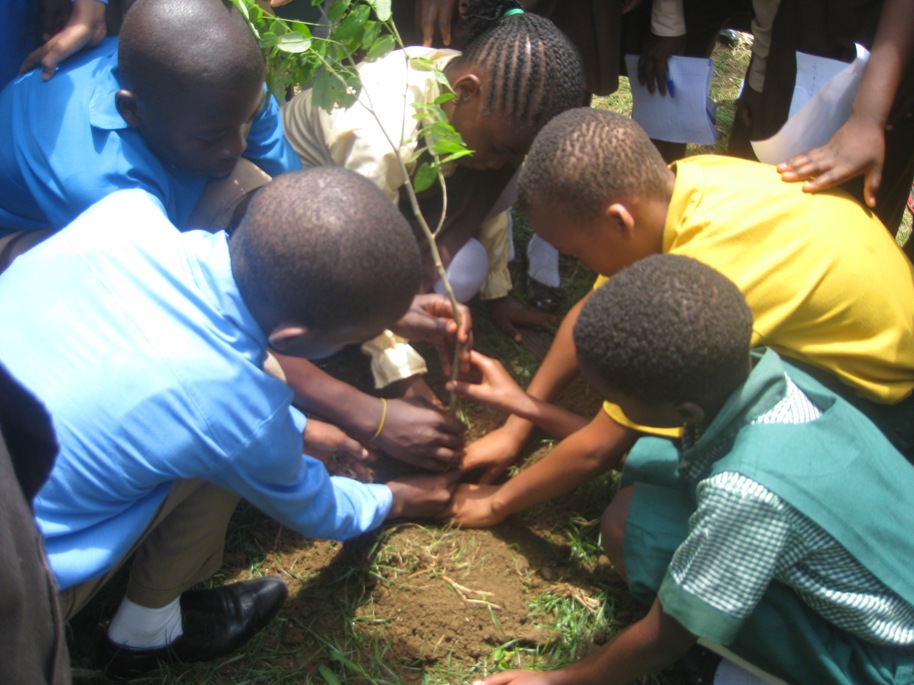Capacity building in Cameroon: Climate Change Workshops for Young People

Introduction
In order to adapt to climate change, communities must first have an understanding of what climate change is, and what it means for them and their future.
In Cameroon, many unsustainable and maladaptive actions are carried out in ignorance. In general, people do not take pro-environmental activities seriously due to the infrequent undertaking of intervention activities and relevant stakeholder engagement.
Young people, who will face the most consequences of climate change, are the leaders of tomorrow and have a critical role to play in their respective communities. However, this can only be possible if they are empowered with relevant skills. Currently, Primary Environmental Education in Cameroon is limited to the classroom, thus limiting the chances for children to get in contact with nature.
The Climate Change Workshop for Young People is a capacity building project that aims at empowering young people with the knowledge and skills to enable them tackle climate and environmentally related issues in their schools, and to educate their peers, family and the community at large.
At the end of each training workshop, the children are able to distinguish between climate change terms. They are taught about the causes climate change (natural and human induced factors), the impacts of climate change and the various approaches to mitigate and adapt to climate change. Knowing the importance of tree planting and carrying out tree planting is an essential part of the workshop.
Barriers
The barriers to the project include the lack of funding to carry it out effectively and the interest of schools in the project. But with the advent of COP 21 and further communication about climate change on state and local media, many people are aware about climate change and will thus be anxious to seize the opportunity to learn and spread the word about climate change.
Enabling Factors
The project was launched in Kumba, South West Region of Cameroon and will be extended to other parts of Cameroon with respect to time and resources.
The pilot phase of the project was funded with the help of Member Contributions. During this phase, we used flip charts without a projector.
A seed grant from The Pollination Project helped in the purchase of basic project equipments (computer, printer and projector) and other logistics that will be used to step up the quality of delivery of the project and other related activities of GERAS.
Help support our workshops
Fundraising for our workshops has gone live on startsomegood.com.
Learn More
Get in touch with us on Twitter @GERASCAMEROONand network with the project manager @ndzishepngong. Also check out our website at www.gerascameroon.org and find us on Facebook https://www.facebook.com/groups/gerc.environment/
The blog post can be accessed through the link https://gerascameroon.wordpress.com/2015/05/06/climate-change-workshop-for-young-people/ and the video watched through the link https://www.youtube.com/watch?v=UpJzT7wTf3Q
You can read about the award for the project on The Pollination Project’s website at: https://thepollinationproject.org/grants-awarded/ndzishepngong-kelvin-ngwang-and-nshukwi-anita-climate-change-workshop-for-young-people
On Google Plus: https://plus.google.com/+ThepollinationprojectOrg/posts/XdpUNbuGHMB
Also at Huffington Post: http://www.huffingtonpost.com/ari-nessel/spreading-the-love-this-w_b_8502316.html
Or on the GERAS website: http://gerascameroon.org/press-release-on-pollination-project-seed-grant-2015/
This project could have a great impact and a better reputation if supported.
(0) Comments
There is no content